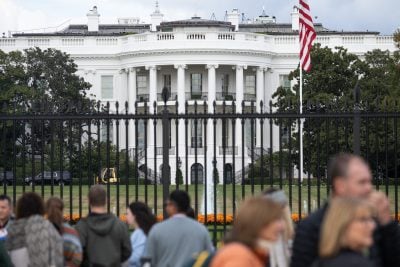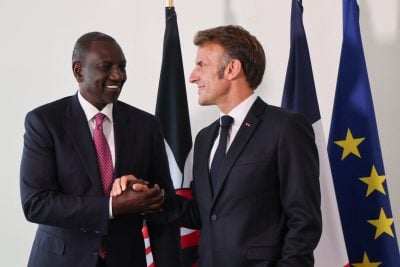Nigeria has become the number-one destination for foreign direct investment, overtaking South Africa for the first time in a decade. This year alone, high-level delegations from north America have pledged vast sums to bring the country’s energy sector up to speed. Frederick Mordi reports from Lagos.
Foreign investors have been coming to Nigeria in droves from all over the world over the last few years and they have taken advantage of the current congenial business environment created by the government to step up their volume of investments.
In January alone, foreign direct investment (FDI) inflow into Nigeria was estimated at $5.2bn (N800bn). There are indications that this figure will continue to rise. According to the 2012 World Investment Report, prepared by the Geneva-based United Nations Conference on Trade and Development (Unctad), Nigeria emerged as the Africa’s biggest destination for FDI in Africa in 2011, with $8.92bn, up from $6.10bn recorded in 2010. Unctad ranked South Africa next with $5.81bn, while Ghana ($3.22bn); Congo, ($2.93bn); and Algeria, ($2.57bn) trailed behind in that order during the period under review. The report ranked these countries as the top five African FDI destinations, based on the volume of FDI they received. Though total FDI inflows to Africa declined in 2011 for the third successive year since the global economic meltdown began in 2008, the report noted that inflows to sub-Saharan Africa rose from $29.5bn in 2010 to $36.9bn in 2011, a level it said was comparable to the peak of $37.3bn achieved in 2008. The report further attributed the drop (a total of $42.7bn) to the protracted social instability in Egypt and Libya, two North African countries which had been major recipients of FDI.
Recent investors
Attracted by this favourable investment climate and the high returns on investment that Nigeria offers, investors from Canada and the US were among those that visited the country this year to further explore investment opportunities that abound. The Canadian Minister of International Trade, Ed Fast, who led a trade delegation to Nigeria in January, stressed the need for the government to protect these growing investments in order to attract more FDI into the country. He gave this advice at a meeting with top Nigerian government officials headed by the Minister of Trade and Investment, Olusegun Aganga, under the auspices of the Nigeria-Canada Bi-National Commission.
The current volume of trade between both countries was estimated at $2.7bn in 2011. This figure is expected to rise to $6bn by 2015, following commitments made at the meeting. IMW Industries, one of the Canadian firms, entered into a partnership agreement with Dangote Industries Limited to provide cheap and clean energy to meet the transportation needs of the company. As part of the deal, IMW Industries will manufacture the fuelling equipment for a nationwide network of Compressed Natural Gas (CNG) that is expected to reduce cost of maintaining fuel for Dangote’s fleet of 5,000 trucks. A Fortune 500 Company, General Electric’s (GE) global CEO, Jeffrey Immelt, also toured Nigeria earlier this year. The visit was a follow-up to his trip to the country last year, during which he disclosed that GE would invest massively in the Nigerian economy over the next few years. (See African Business March 2012 edition).
The American company¸ which operates in four main industries: energy, capital finance, technology infrastructure and consumer and industrial goods, signed a memorandum of understanding with the Nigerian government to invest about $1bn (N157bn) over the next five years in a firm located in Calabar, Cross River State to develop new power plants and a cyber-shop that would enhance the vocational skills of the people. According to Immelt, an initial commitment of $250m (N40bn) would be used to expand the company’s manufacturing and servicing capabilities in the country.
Immelt expressed the confidence that the investment would make Nigeria a regional hub for manufacturing, service and innovation with an improved ability to support a broader range of product lines in power generation as well as oil and gas exploration and production. GE also signed an agreement with the government to overhaul the railways sector, which has been lying comatose over the years, and reached a deal with the Ministry of Health to build the capacity of its personnel as well as a commitment to provide state-of-the-art medical facilities. The American conglomerate restated its resolve to generate up to 10,000 MW of electricity to address the power needs of Nigeria. To this end, GE signed a joint development agreement with power developers that will generate a total of up to 1,500 megawatts.
Partnering for progress
GE sealed a number of other deals with some local companies that would fast track infrastructural development in the country.
One of them is Geometric Power Limited, owned by Nigeria’s former Power Minister, Professor Bart Nnaji, with which GE signed a $500m joint development agreement (JDA) to develop a 450 megawatts power plant in Aba, Abia State. Geometric Power is the first indigenous privately-owned company in Nigeria to build a power station.
Transnational Corporation of Nigeria Plc (Transcorp) and GE also signed a framework agreement to cooperate in the area of infrastructure, with special focus on power and transportation. Both companies will increase power generation to 650 megawatts at the Ughelli Power Plant in oil-rich Delta State. Transcorp Ughelli Power Plc, which is a subsidiary of Transcorp, a listed and diversified conglomerate with investments in a wide range of sectors in the economy, won the privatisation bid for 100% acquisition of the Ughelli power plant, last year.
The agreement, which was signed by Immelt and Transcorp chairman and former banker, Tony Elumelu, will allow both companies to work out a partnership for the overhaul and expansion of the power plant. Elumelu said: “I believe in long term investments that create economic prosperity and social wealth. Our partnership with GE further signifies our commitment to sustainable economic development for Africa, by Africans. Power and transport are two major areas we know can turn economies and drive development. This is ultimately what we want to see happening in Nigeria.” Explaining why GE decided to partner Transcorp, Immelt added: “We chose to partner with Transcorp because it is an African company with an investment philosophy that will drive change here and in the rest of Africa.”
Dangote Industries Limited (DIL) also signed an agreement with GE to collaborate on projects in power, transportation and the oil and gas sectors of the economy. The deal was sealed during a meeting between president/ chief executive of Dangote Group, Aliko Dangote and Immelt. In the same vein, the Honeywell Group, owned by business mogul, Oba Otudeko, signed a MoU with GE to facilitate the development of its 150MW power generation facility. The Nigerian Electricity Regulatory Commission (NERC) licensed Hudson Power Limited, a subsidiary of the Honeywell Group, to generate electricity in the country as an independent power provider.
Preferred investment destination
Experts have said this steady inflow of FDI into Nigeria will accelerate the country’s quest to rank among the top 20 economies in the world by the year 2020. For instance, they point out substantial improvement in power supply, as is currently being recorded, will help Nigeria move rapidly to the next level of development. It is expected that the various power projects which GE intends to execute in partnership with local firms, will further boost output. This will have multiplier effect on virtually all sectors of the economy, as it will lead to lower production costs and more profitability for companies.
Small and medium-scale enterprises (SMEs) in the country which have had to rely on alternative power will also be able to employ more hands and add value to the economy.
The government has taken some steps to safeguard these investments. The inauguration of the National Competitiveness Council of Nigeria, by President Jonathan in February this year, is a step in this direction. The 18-member board, chaired by the Minister of Trade and Investment, has the mandate of increasing productivity and sales for local businesses, as well as the creation of more markets for made in Nigeria products. The council is expected to further improve Nigeria’s global competitiveness ranking.
Want to continue reading? Subscribe today.
You've read all your free articles for this month! Subscribe now to enjoy full access to our content.
Digital Monthly
£8.00 / month
Receive full unlimited access to our articles, opinions, podcasts and more.
Digital Yearly
£70.00 / year
Our best value offer - save £26 and gain access to all of our digital content for an entire year!
 Sign in with Google
Sign in with Google 


